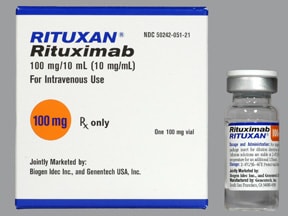"The case report below reminds me of the era prior to NHS England setting new prescribing guidelines. I have treated several patients with malignant MS with rituximab via the so called IFR (individual funding request) route with similar success to the case below. As these cases are not unique, and there are more than 5 of them in England and Wales, we have to put in a business case for using Rituximab off-label. As there are now other treatment options and the data regarding Rituximab is currently limited to only one positive class 1 evidence trial, supported by several small case series, I have been told the business case will fail. Therefore we are in a Catch-22 situation at present with regard to the use of off-label rituximab for treating MS in the NHS. This is great pity as it is a really effective treatment and it is actually reasonably cheap relative to natalizumab and alemtuzumab. As a result of this I have had two MSers pay, and receive, rituximab privately. The latter is particularly galling as it challenges everything the NHS stands for; equity and free care at point of access. All of a sudden we have new NHS playing field dictated by money."
"Interestingly, MSologists in Sweden are using a lot of rituximab off-label to treat MS, in particular high-risk MSers who are JCV-positive coming off natalizumab. As rituximab only depletes B cells and leaves the T-cell compartment relatively intact this strategy makes sense. I suspect it will put MSers making the switch at much lower risk of developing carry-over PML compared to other options that are immunosuppressive. Protection from and recovery from PML is linked to intact T cell function, in particular the CD8+ T cells (cytotoxic T lymphocytes)."
"The issue of rituximab vs. ocrelizumab is not a trivial one. Rituximab comes off patent later this year and there are several rituximab biosimilars due out. There is already one available in India. This should lower the price of anti-CD20 treatment and may disrupt the MS market outside of Europe. Please remember we can't prescribe an off-label, or unlicensed, drug for MS if there are licensed alternatives. EU law was created to protect Pharma innovation and Pharma are not scared of using the law to protect their investments and assets; for example, Novartis successfully challenged the NHS over the off-label use of bevacizumab, instead of ranibizumab the licensed product."
Parfenov et al. Management of Fulminant Multiple Sclerosis With Rituximab: A Case Report. Neurologist. 2015 Jun;19(6):155-7.
INTRODUCTION: Malignant variant is a rare subtype of multiple sclerosis (MS) that is rapidly progressive and may lead to significant disability or even death. No consensus exists on best management of this disorder, although corticosteroids and plasmapheresis are commonly used in the acute phase, followed either by MS-specific disease-modifying therapy or an immunosuppressant.
CASE REPORT: The patient is a 30-year-old man with relapsing-remitting MS previously well controlled with natalizumab, who has developed fulminant disease activity upon natalizumab cessation. In the acute phase, patient had a suboptimal response to multiple corticosteroid treatments but responded very well to plasmapheresis. Patient continued to have worsening disease activity despite fingolimod treatment. Disease control has been eventually achieved by switching to rituximab.
CONCLUSION: Rituximab treatment should be considered for a patient with fulminant MS who responded well to plasmapheresis.
"It will be interesting to see how Sweden deals with the wide use of off-label rituximab, if and when ocrelizumab is launched. I suspect ocrelizumab will be much more expensive than rituximab and there will be pressure on payers to save money by allowing the use of the cheaper alternative. This may trigger some of the same shenanigans that has happened around the use of bevacizumab (Avastin) instead of ranibizumab (Lucentis) to treat wet age-related macular degeneration in the UK and other countries."
"The issue of rituximab vs. ocrelizumab is not a trivial one. Rituximab comes off patent later this year and there are several rituximab biosimilars due out. There is already one available in India. This should lower the price of anti-CD20 treatment and may disrupt the MS market outside of Europe. Please remember we can't prescribe an off-label, or unlicensed, drug for MS if there are licensed alternatives. EU law was created to protect Pharma innovation and Pharma are not scared of using the law to protect their investments and assets; for example, Novartis successfully challenged the NHS over the off-label use of bevacizumab, instead of ranibizumab the licensed product."
Parfenov et al. Management of Fulminant Multiple Sclerosis With Rituximab: A Case Report. Neurologist. 2015 Jun;19(6):155-7.
INTRODUCTION: Malignant variant is a rare subtype of multiple sclerosis (MS) that is rapidly progressive and may lead to significant disability or even death. No consensus exists on best management of this disorder, although corticosteroids and plasmapheresis are commonly used in the acute phase, followed either by MS-specific disease-modifying therapy or an immunosuppressant.
CASE REPORT: The patient is a 30-year-old man with relapsing-remitting MS previously well controlled with natalizumab, who has developed fulminant disease activity upon natalizumab cessation. In the acute phase, patient had a suboptimal response to multiple corticosteroid treatments but responded very well to plasmapheresis. Patient continued to have worsening disease activity despite fingolimod treatment. Disease control has been eventually achieved by switching to rituximab.
CONCLUSION: Rituximab treatment should be considered for a patient with fulminant MS who responded well to plasmapheresis.
CoI: multiple
